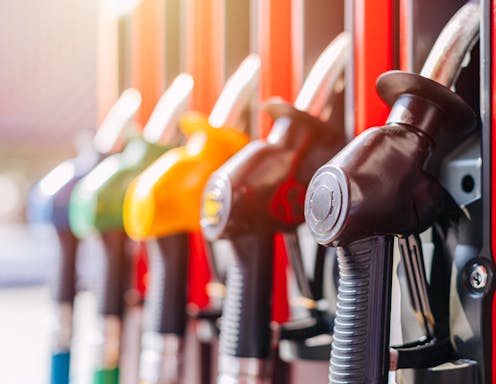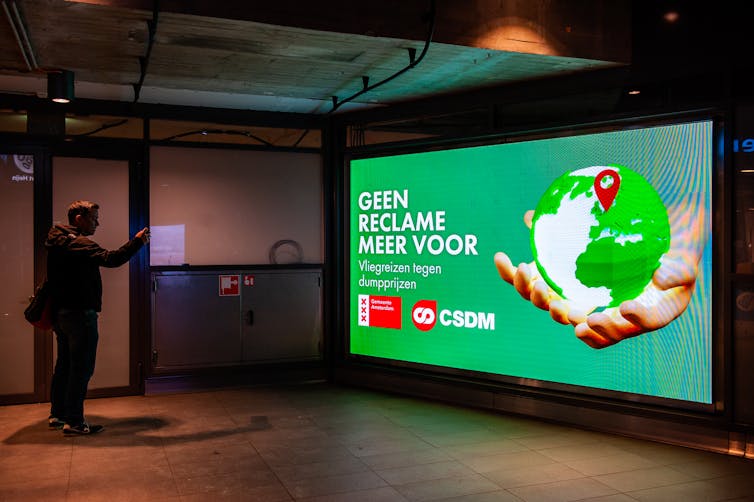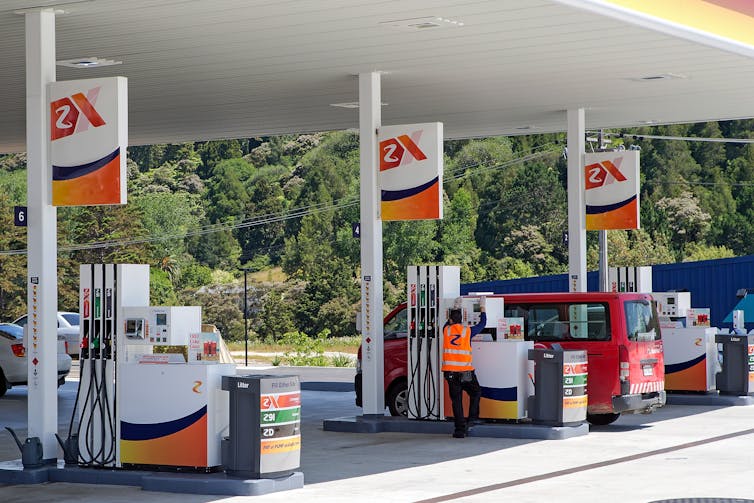
Can we imagine a world without fossil fuel advertising, let alone fossil fuels themselves? That was essentially the question posed by United Nations Secretary General António Guterres this week.
Calling the coal, oil and gas industries the “godfathers of climate chaos”, who had “shamelessly greenwashed” environmental issues through lobbying, legal action and advertising campaigns, he said:
I urge every country to ban advertising from fossil fuel companies.
When the head of the UN calls on your industry to take action to help prevent the catastrophic effects of climate change, it should be a wake-up call. The next question is, then, are the New Zealand advertising and public relations industries listening?
A movement gaining momentum
In 2022, France became the first country to ban fossil fuel ads, although critics say the law doesn’t go far enough, with natural gas and sponsorship of events exempt. Medical professionals in Canada and Australia have also called for bans on fossil fuel advertising.
A private member’s bill in Canada’s parliament, aimed at curbing fossil fuel advertising, has passed its first reading. In Australia, a senate inquiry into greenwashing has heard allegations that Channel Ten blurred the line between news and natural gas advertising.
The inquiry is due to report back at the end of this month. Meanwhile, Australian independent and Green MPs have endorsed Guterres’ call for an ad ban.
Local governments have gone even further. Last week, the City of Edinburgh Council passed a ban on “high-carbon products and services”. Air travel, airports, SUVs, cruises and fossil fuel companies are specifically excluded from advertising on council-owned sites.
Amsterdam was the first city to enact similar laws in 2021, and several smaller cities and regions in the United Kingdom and Europe have done the same.
Closer to home, the Fossil Ad Ban campaign, run by Australian creative industries lobby group Comms Declare, has seen 16 local councils, including the City of Sydney, sign on to cut fossil fuel advertising in their regions.

Targeting high-emissions industry
New Zealand’s largest fossil fuel company, Z Energy, has been taken to court by Consumer NZ, Lawyers for Climate Action NZ and the Environmental Law Initiative for claimed breaches of the Fair Trading Act.
The case is based on Z Energy’s 2022 advertising campaign claim that “we’re in the business of getting out of the petrol business”, while fuel sales have since increased.
According to research by the Sustainable Business Council, Z Energy (which is a member of the council) is among the companies “associated with sustainability among at least 50% of New Zealanders”.
Z Energy is also one of seven corporate defendants facing court action brought by iwi leader Mike Smith, who alleges “public nuisance, negligence and climate system damage”.
Co-defendants Fonterra, Genesis Energy and New Zealand Steel are also members of the Sustainable Business Council, whose work involves “championing our members to be at the leading-edge of sustainability”.

Advertising slow to change
To date, no local or regional councils in Aotearoa New Zealand have enacted any ad bans of the type seen elsewhere in the world. Similarly, no major advertising or PR firms have declared an intention to divest their fossil fuel clients.
Local initiative Ad Net Zero was launched last year to encourage decarbonisation within the advertising industry itself. Communications Council chief executive Simon Lendrum, who helped launch Ad Net Zero, said in a podcast interview last year there was a need for “collective systemic change”.
But he drew the line at suggesting agencies drop fossil fuel clients from their rosters. Ending fossil fuel advertising without wider support from industry and government, he said, would be “facile”.
Given the National-led coalition’s intention to revive oil and gas exploration, and its commitment to building more roads, it would seem unlikely Guterres’ call for an ad ban will gain much traction in Wellington.
An anxious industry
Within the advertising industry itself, however, there is support for what Guterres is saying. In my work as a teacher, I find students regularly raise concerns about these ethical conflicts as they look to start their careers.
Recent UK research shows climate anxiety is higher among those in the advertising industry than in the general public. MOre than half of industry respondents felt anxious about climate change, while almost 40% felt demoralised about it.
This should come as little surprise. The industry is filled with young, passionate, intelligent and creative people. Advertising is about connecting the dots – bringing together concepts or ideas that might seem unrelated but which create new understandings and emotional “pull”.
Perhaps advertising professionals simply made the connection between their own business and climate change sooner. The question is, will advertising agencies be bold enough to recruit and protect their future talent? Or will they continue to take the money, no matter the cost?
Matt Halliday is affiliated with Comms Declare.
This article was originally published on The Conversation. Read the original article.







